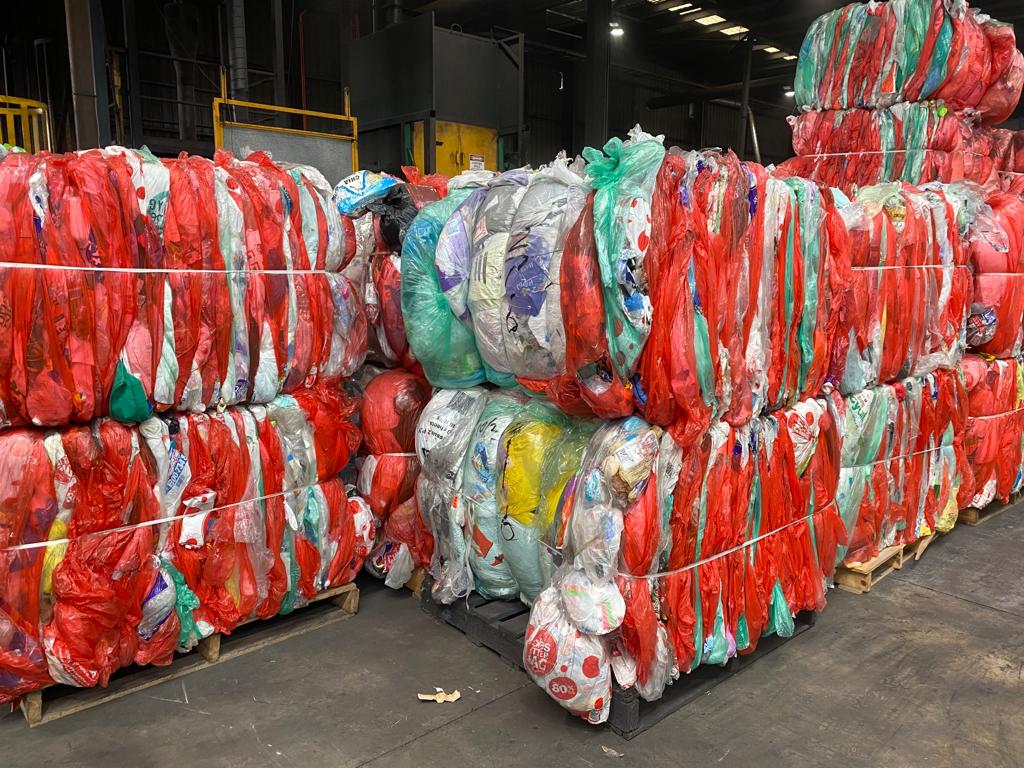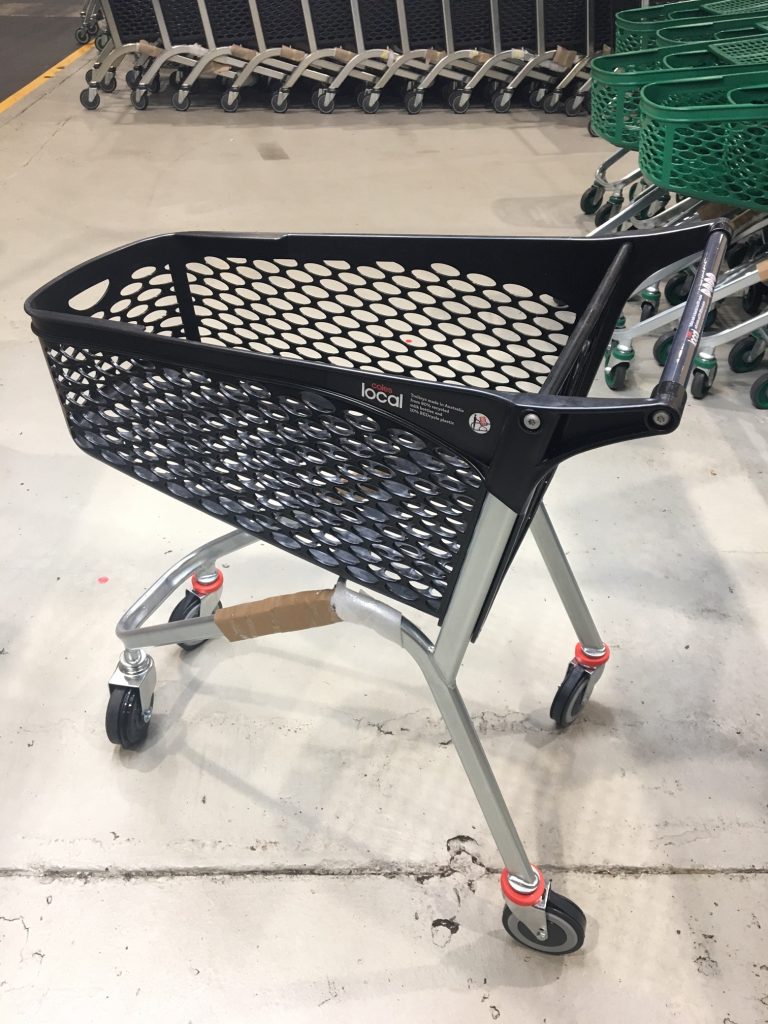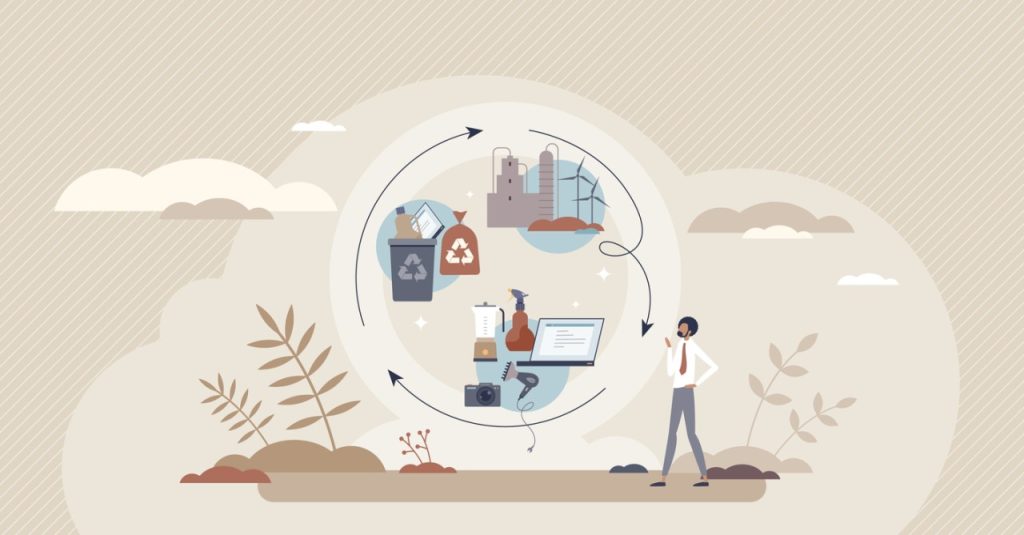Sustainability in Action
Circular Contracts – The Future of Recycling

As consumers, and in our case, supply chain partners, we all loved the Redcycle Program. Why did it fail? It was a victim of its own success in some ways, and it failed to engage the whole supply chain effectively. On the collections side, public participation was growing fast but the recycling was not keeping up, in fact it seems, it never matched collection. The Redcycle team mobilized the country to proudly divert soft plastics from landfill, to bag it all up and drop it off at your local Coles or Woolies supermarket. They would service thousands of supermarkets around the country, collecting and baling your soft plastics but finding willing recyclers was the problem.
One reason recyclers didn’t flock to the show was the nature and complexity of the waste stream. We called it the ‘Mongrel Mix’ and for good reason. The bales of Redcycle material, mainly Polyethylene (PE) and Polypropylene (PP) but with smaller amounts of perhaps 30-40 different materials from PVDC, EVOH, Nylon and PET to metalised films, paper, glue and inks were a mess. ‘Despite the existence of APCO’s Sustainable Packaging Guidelines packaging design has been unregulated. Although there are some moves now to restrict problematic materials, the legacy problem will persist for several years to come.


The second and perhaps more important reason the recycling end of the Redcycle program failed was because there were no markets for products of recycled content. The fact is that nothing gets recycled until someone buys a product made from recycled content, and no-one, not the brands, not APCO, not the Supermarkets, not Councils, and not Joe public made a concerted effort to create markets for products of recycled content. Now granted, the mongrel mix was a challenge but it can be done. CtL proved that with our asphalt additive called TonerPlas® and an injection moulding grade of plastic called rFlex®, both made from the mongrel mix. TonerPlas is a 10 year overnight success, culminating in it’s approval and use in two of Melbourne’s major freeway upgrades, and rFlex being used at 20% in a Coles shopping trolley in partnership with IPS.
A significant fire at our Somerton recycling plant in July 2022 effectively snuffed out the only meaningful recycling of Redcycle material, and the result is history.
TonerPlas and rFlex are back, bigger and better than ever, ready to help clean up the Redcycle stockpile and support the supermarkets as a new retail program is getting ready to launch. The key now is focus our collective energy on creating markets for products of recycled content, and that is why we (CtL) are only taking feedstock (mixed soft plastic) from supply chain partners that support a circular economy. To guarantee our partners commitment to the difficult end of the supply chain we are committed to a new policy “We only sign circular contracts”. We do not provide traditional linear recycling services anymore, they are outdated and do not work.

So how does a ‘Circular Contract’ work? It’s very simple, if one party wants their feedstock recycled (eg. The mongrel mix), they commit to the following guidelines:
- CtL trains supply chain partners as to what plastic types are allowed and what is not
a. EG. PVC pool toys are a definite no - Soft plastic is baled to CtL spec (size of bale, type of strapping etc)
- CtL co-ordinates freight (no unknown arrivals)
- Supplier pays processing fee to CtL
- Supplier (partner) buys back equivalent amount of finished product by weight.
a. Either TonerPlas® or rFlex®.
This agreement limits the supply chain partners we attract and maintains a circular business model for all parties. The types of companies we attract with the ‘Çircular Contract’ model are the major supermarkets, global brands like Dupont, DHL, Amazon etc., and local Government like the City of Greater Bendigo.
What do they buy back I hear you ask? Supermarkets buy TonerPlas for their carparks and other civil works, councils buy TonerPlas for their roads, supermarkets buy rFlex for making their tubs, crates, shopping trolleys and hand baskets, and global brands including the big food companies that use soft plastic packaging buy rFlex for manufacture of shipping pallets, shop fittings, and more.
The only way we’ll build resilient supply chains called recycling is for everyone from consumers, brands, transport, manufacturers and industry to put aside our bias toward virgin plastics and understand that if we want to reach global greenhouse emissions targets and National Waste Policy targets we need to replace virgin plastic with recycled plastic as a priority. It’s up to the entire supply chain to make it happen, no if’s, but’s or maybe’s. It’s not rocket science; it’s about having a can do attitude and getting rid of the blockers.
We believe ‘Circular Contracts‘ are the new model for recycling complex feedstocks, what do you think? Let me know at steve@closetheloop.com.au
Global Reach
-
Australia
Visit Site -
New Zealand
Visit Site -
United States
Visit Site -
Europe
Visit Site
